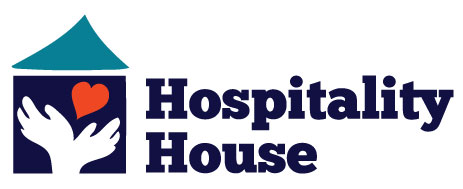In partnership with County of Nevada and Dignity Health Sierra Memorial Hospital, Hospitality House opened a new recuperative care dormitory in October 2018. In just a few months’ time, success from the new dormitory is already evident.
“Even in these early stages, we’re seeing the program’s success,” explained Isaias Acosta, Program Manager at Hospitality House. “Of the 23 people who have utilized recuperative care thus far, the average stay was only 10 days. This is a big deal. Guests at the shelter are able to recover completely from their injuries in one safe location, decreasing their need for hospital treatment or extended care and recovery.”
The recuperative care dormitory is designed exclusively to welcome homeless patients released from Sierra Nevada Memorial Hospital to Hospitality House where they can continue to rest and recuperate from their ailments and injuries, 24 hours a day, seven days a week at the shelter. The dormitory can serve up to four guests at a time.
“Dignity Health recognizes the need for medical respite for those experiencing homelessness in the communities we serve,” said Brian Evans, president, Sierra Nevada Memorial Hospital. “We are thrilled about the program’s success to date and so thankful for our partnership with the County of Nevada and Hospitality House.”
In addition to resting at the shelter, in-house physical therapy has also been provided to guests in recuperative care as needed through the hospital, reducing the number of repeat hospital visits. Previously, all guests, except for caregivers at Hospitality House, were required to leave the shelter each day from 7 a.m. to 4 p.m., which can be challenging for someone recovering from a serious injury, often walking on said injury.
Recuperative care data for patients served from Oct. 1, 2018 to March 7, 2019 shows signs of long-term success:
Number of people served: 23 (two of which were veterans):
- 15 men
- 8 women
Ages of people served:
- 25-34 – 1
- 35-44 – 3
- 55-61 – 8
- 62+ – 11
Medical condition treated (individuals can be treated for more than one; 17 of the 23 have three or more conditions):
- Mental health – 11
- Alcohol – 4
- Drugs – 4
- Both alcohol and drug abuse – 11
- Chronic health condition – 16
- Developmental disability – 5
- Physical disability – 17
Length of stay for recovery (the average length of stay was 10 days):
- 30 days or less – 20
- 31 – 60 days – 3
Exit destinations:
- Moved into high barrier dormitory/sober living – 12
- Went to live with friends – 2
- Returned to the street – 4
- Went into SUD treatment – 1
- Returned to the hospital – 3
- Went to a hotel – 1
It is important to note, of the 23 who utilized the program thus far, the majority (52%) have graduated from recuperative care to the high barrier dormitory at Hospitality House, also known as the sober living dormitory. All of these guests are now candidates to move into housing.
“We are excited to see the initial positive impacts the recuperative care program is creating,” said Mike Dent, Director of Housing and Child Support Services. “The Board of Supervisors priority on homelessness is focused around community partnerships to create an expanded system of coordinated care and supportive services. This program helps mitigate the impacts of homelessness on the community by providing purposeful care to our homeless residents, reducing their need for frequent ER visits and improving outcomes by providing a place to recover from their medical treatment. We are very grateful to have community partners like Sierra Nevada Memorial Hospital and Hospitality House to help us make meaningful progress on these hard community issues.”
To learn more about the recuperative care dormitory, please contact Program Manager Isaias Acosta at 530-615-6679.
